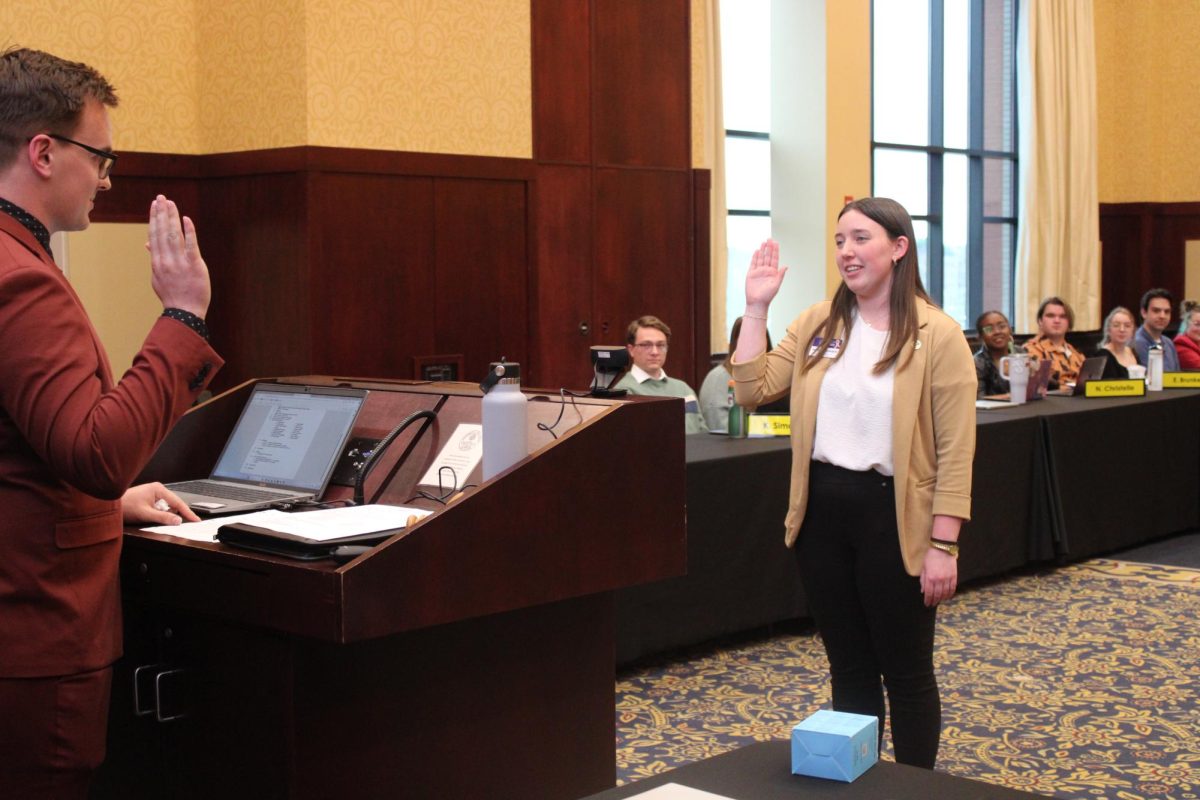The process of voting at the polls on Election Day may require extra steps if a bill making it necessary to show a government-issued photo ID passes in the Wisconsin Senate.
The bill, which passed in the Assembly on Feb. 24 by a 64-33 vote, is being endorsed by the state Republican Party as an efficient method to combat fraudulent voting, according to a press release.
The bill is now on the Senate’s agenda, and one of the bill’s supporters, Sen. Dave Zien, R-Eau Claire, said he hopes to see the legislation on the floor by May. He said he expects the bill to pass the Senate easily.
“It’ll get good support across the state,” Zien said. “It’s going to go.”
He said the bill is the most effective way of preventing voter fraud, a problem Zien said was evident in the Nov. 2 election.
“To bring your water bill or electric bill … or comic book (to vote) is intolerable and inappropriate,” Zien said, referring to the current law which requires a proof of address to register to vote. “You’re always going to have fraud, but this is going to slow it down.”
However, the bill is not without controversy or opponents.
Junior political science major Annie McHugh said she opposes the photo ID bill because it will make voting more difficult, especially for students.
“There are people who are lazy about voting anyway,” she said. “It makes it that much harder for people who actually want to get out and vote, but don’t have the time.”
McHugh also said the bill will make voting more difficult for students in particular, since often their current address is not the same as that on their driver’s license or passport.
Political science professor Geoff Peterson said he doesn’t see the photo ID requirement necessary in Wisconsin, and believes the reported voter fraud in Milwaukee has been blown out of proportion.
“I don’t think there’s nearly enough evidence to support any sort of drastic changes at this point,” Peterson said. “Occasionally, (voter fraud) will happen. The question is, is it worth potentially disenfranchising thousands of people over one event that certainly looks to me like it’s been blown out of proportion.”
Disenfranchisement should not be an issue if the bill is signed into law, Zien said.
“I do not think it will happen,” he said. “If (people) want to use the excuse not to vote, they can claim they are sick on Election Day.”
Peterson also said the bill negatively targets certain portions of the population, including American Indian voters.
“I do know that the American Indian community is very upset about it because a lot of them don’t have any form of state ID,” he said. “They have tribal IDs and they’re asking for that to be changed.”
Zien, a member of the Senate’s Special Committee on State-Tribal Relations, said there may be some amendments to the bill addressing American Indian concerns before it passes in the Senate.
“I think there are going to be some amendments that’ll fix that,” Zien said. “Maybe we’ll expand what an ID really is.”
Senior Nichole Ray, an American Indian student, said even if tribal IDs are allowed, proper poll training is necessary to make sure everyone who wants to will be able to cast a ballot.
“I really do think it can cause some serious problems because a lot of people aren’t familiar with tribal IDs,” Ray said. “I understand that they do need to deal with voter fraud … but unless (poll workers) have really great education, I can’t see that this is going to work.”
If the bill does pass the Senate, it will be placed on Gov. Doyle’s desk for approval. If Doyle vetoes the bill, it will then require a two-thirds vote in both legislative bodies to override his decision.
Zien said if Doyle does decide to veto the bill, he will help push for an override.
“A veto override is very difficult,” he said, “but you can bet your boots we’re going to try.”






